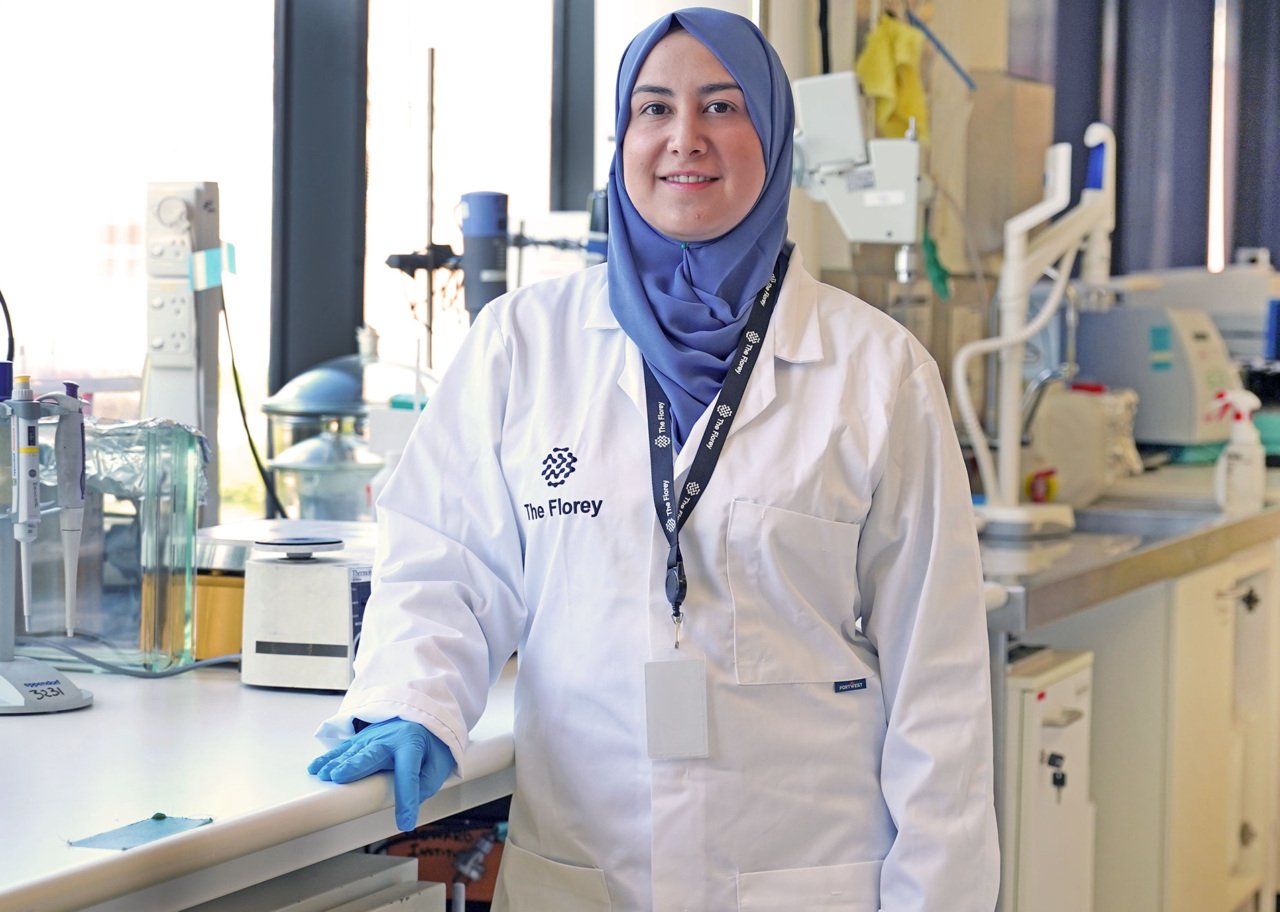Research by The Florey’s Drug Discovery Innovation Group has identified a new, highly specific drug, Cpd1, which can help scientists understand what types of diseases and illnesses the cell-surface protein ‘α1B-adrenoceptor’ may be responsible for.
The research, led by Dr Alaa Abdul-Ridha, was published in ACS Chemical Neuroscience.
α1B-adrenoceptor is abundantly found in the brain and contributes to transmission of nerve impulses between neurons so it may be involved in numerous central nervous system disorders like Alzheimer’s or epilepsy. The researchers have proven that this critical protein can be specifically targeted with the Cpd1 drug.

The Florey research was conducted in collaboration with researchers at University of Zurich, Monash Institute of Pharmaceutical Sciences, Bio21, Vernalis Research and brought together experts in dementia and systems neuroscience at The Florey.
“Through a collaborative effort and rigorous drug testing, we were able to find a drug molecule that was specific to the α1B-adrenoceptor,” Dr Abdul-Ridha said.
“There are 8 other receptors which are structurally very similar to α1B-adrenoceptor, and it can be hard to find the key for the lock when there are 9 almost identical locks,” she says.
“By finding this specific drug, we have identified a tool that will enable us and other researchers in the field to better understand the role of this protein in normal human physiology and in disease.”
The α1B-adrenoceptor and its related proteins are also found in blood vessels and in the heart muscle where they are known to contribute to blood pressure regulation and heart contractions. Due to the lack of specific drugs to study them, the proteins individual roles remain unclear.
“Identifying a specific compound is an important step towards understanding the role of the α1B-adrenoceptor in our body and a step closer to achieving more selective therapies with fewer side-effects,” says Dr Abdul-Ridha.
“Through our research, we are enabling the discovery of novel and more specific drugs. For the future, this means safer and more targeted drugs to patients.”